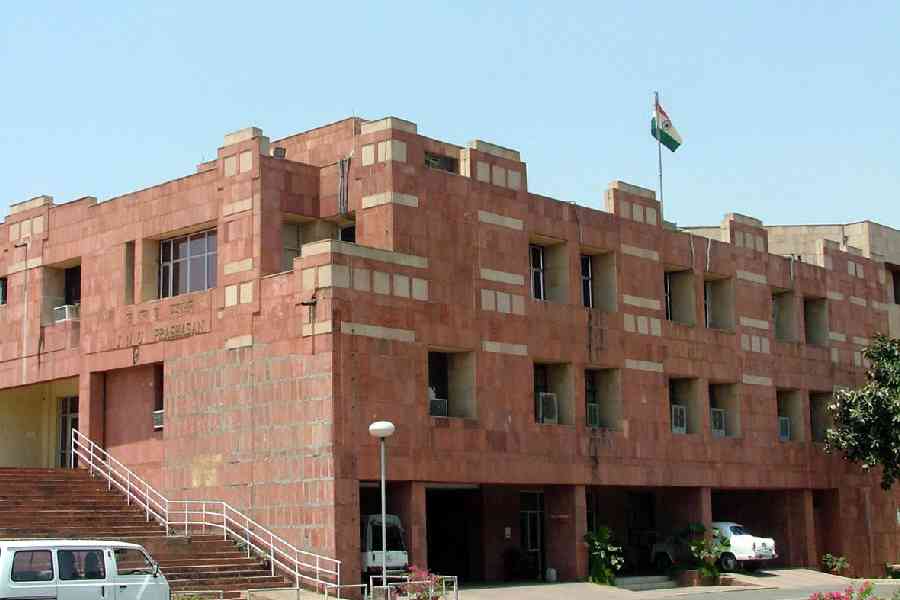The government has asked over two dozen central universities to create a provision in their statutes to include its nominee in their executive councils (EC), a move that academicians have decried as yet another attack on the autonomy of institutions.
The education ministry has written to the vice-chancellors of central universities to amend their statutes to create space for the government’s direct involvement in the affairs of the universities, including academic matters. The EC is the top body in a university that decides on broad policy, development, fees, academic programmes and recruitment.
The EC of any central university has around 15 to 25 members. The Visitor or the President of India nominates two members to the EC in every central university. The education ministry coordinates with the President’s office to nominate these two members.
The education ministry has argued that 20 of the 48 central universities currently have its nominees. It has asked the 28 other universities to have the same policy to bring uniformity in governance.
“To ensure uniformity in governance across all central universities, it is suggested that the secretary (higher education), ministry of education, government of India or his/her nominee be included as a member of the executive council of your university. This inclusion is critical to align the governance structures of all central universities and to facilitate more consistent collaboration with the ministry,” the letter issued on August 20, 2024, stated.
“Accordingly, you are requested to take necessary steps to amend the statutes of your university to include the above representative from the ministry as a member of the executive council. The amendment of the statutes be completed and submitted to the ministry for obtaining the assent of the Visitor within 60 days of the issuance of this letter,” the letter added.
With the deadline approaching, Jawaharlal Nehru University (JNU) and Delhi University (DU) have convened meetings of their ECs on October 14 to approve the ministry’s proposal. The academic council of both universities have already approved it.
The JNU Teachers’ Association (JNUTA) has called it an attack on the autonomy of the university.
“This is nothing but a nefarious attempt to undermine the law of the land, which vests the powers of awarding degrees only to universities that are created through acts of legislatures — whose precise logic is that these institutions have to be autonomous bodies and not be departments of the government. JNU and all central universities are created by Acts of Parliament,” it said.
“The education ministry has the responsibility to ensure that they receive adequate public funding to perform their function, and it is not within the ministry’s powers to ‘control’ their regular functioning. While the ministry has failed to discharge its responsibility on the financing side, resulting in a steep decline in essential expenditures related to the university’s academic activities and the crumbling of its infrastructure, it is effectively seeking to take over the powers of the university’s statutory bodies granted to them by the Act and the statutes,” it added.
The JNUTA said the move would have damaging consequences for the future of the institution.
Aman Kumar, a member of the DU’s EC, said the government was trying to directly interfere in the university’s affairs.
“The Visitor already has two nominees. Since the Visitor is advised by the government, these nominees essentially put forth the government’s point of view. Now the secretary of the ministry or his nominee will be a member. The EC will become a subservient body of the government,” Kumar said.
The VC of a central university, however, defended the move. “The secretary or his nominee will put forth the perspectives of the education ministry about grants, funding or loans. The presence of a ministry official will streamline the decision-making process in the university,” he said.
An email was sent to higher education secretary Sanjay Murthy to understand his perspective on the allegation that the government was trying to meddle in the affairs of the universities. His response is awaited.











